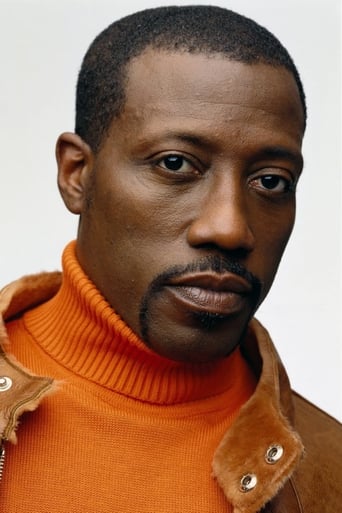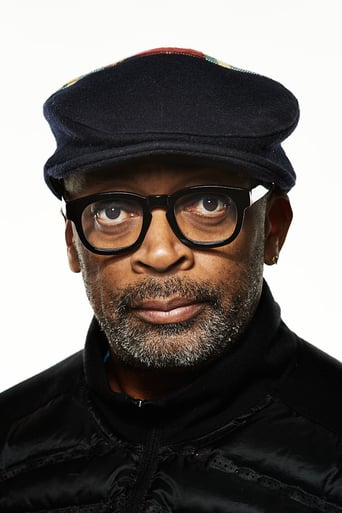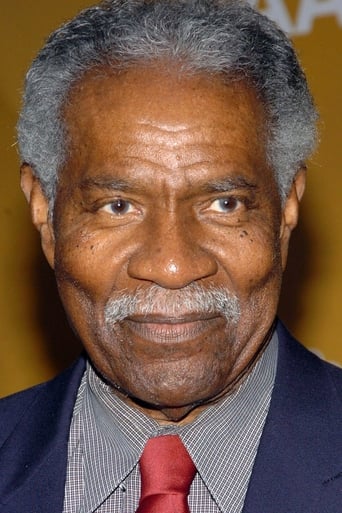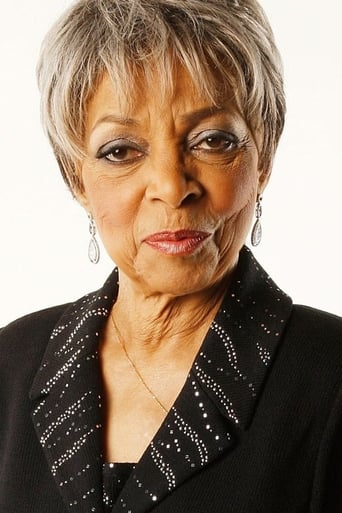Ensofter
Overrated and overhyped
Chirphymium
It's entirely possible that sending the audience out feeling lousy was intentional
Portia Hilton
Blistering performances.
Matylda Swan
It is a whirlwind of delight --- attractive actors, stunning couture, spectacular sets and outrageous parties.
DemiRonin
Jungle Fever has a star packed cast that delivers marvelous performances. Unfortunately, they are wasted on Lee's loosey goosey directing. Jungle Fever opens with Spike Lee's favorite character of all time, New York. After a plethora of images of street signs, subways, Harlem, and the words "Spike Lee" we open on a slow motion shot of a newspaper flying through the air...which seems to have no other significance than presenting the words "The New York Times"! After which we see a sex scene with Flipper played by Wesley Snipes loudly making love with his black wife. Why mention black? Because this is a movie about race, and since Jungle Fever is not gonna put in the effort to tactfully express its theme neither will I. Flipper is an upper-middle class architect working at a firm controlled by two white men. Although putting it in pen and paper that he requests a black secretary instead he is given a young Italian American woman named Angie. Angie lives at home providing the motherly stand in for her very Italian father and brothers. Flipper and Angie, never having been intimate with anyone outside their race (except for Flipper's half Caucasian wife) work late into the evenings and eventually build an attraction to each other which Spike Lee calls "Jungle Fever". Thus, their interracial affair begins causing tension to build and explode between a multitude of characters. In addition Flipper also has a crack head brother played by Samuel L Jackson who runs around with his crackhead girlfriend played by Halle Berry looking to score cash from all his bloodlines including his poor mother who can't help but give into her 1st son when he does a little dance. The film's time is split between an assortment of characters who make up a collection of stories on interracial relationships and the ethnic hardships of New York Blacks and Italians. To give an example of how over handed and disjointed the racism is portrayed there is a scene where Flipper and Angie are pretend boxing. Flipper grabs Angie pinning her onto a car when Police officers show up forcing Flipper in a submissive position shoving a gun into his face. Obviously they had misread the situation but with Flipper screaming "I'm gonna kill you!" with his hands on her neck its understandable why the officers jumped to that conclusion. There's also a scene where Angie's father beats her for having relations with a "nigger". Perhaps it's the age of the film and people back then needed racism to be spelled out in a very overt and sensational manner. Jungle Fever is without a center jumping all over the place with extremely poor editing. The editor Samuel Pollard has edited mainly documentaries since, which is fantastic. The further he stays away from narratives the better. I'm trying to figure out how these scenes possibly transitioned into one another in script. I know that Lee likes to do harsh transitions but this film is just ridiculous. Jungle Fever is littered with ueven pacing and scenes that lose their punch because people need to walk in and out of frame. Example: Flipper and Angie are being ignored at a restruant because they're interracial then at the end of the scene when Queen Latifah, playing the waitress, walks off there's a 3 second cutaway where two bystanders say "She's White!?" "Mhmm Hmm" Jungle Fever is a film that indulgently satisfies itself. You feel ever bit of Lee's directorial manipulation while be beats you over the head with dialogue after dialogue about people's opinion on race & society. In fact there is a four minute scene of 5-6 black women just talking in a room about how about how they are disenfranchised. What is the point of a camera if you're just going to film taking heads? The camera angles and techniques in this film are all over the place in this film. In a scene where Flipper is asking for partner the camera just spins around them for about 3 minutes. I'm sure it was hard technique to film but why do these obtrusive techniques show up randomly throughout the film. I'm wondering if Lee showed up on set and rolled a dice every day. "OH look It's a 3, that means today I wanna put me and Wesley on a dolly and we are just gonna do this scene like we're drifting like ghosts". Strange camera techniques like these make me believe that Spike Lee wanted to make an experimental film. On the plus note all the actors are amazing and Spike Lee has a great eye for talent. Samuel Jackson STEALS this movie! Every scene with Jackson is a treasure and I'm sure when he's given his life time achievement award and there showing clips of his work, Jungle Fever will be contained in that reel. This movie is fun to watch to watch for the acting but I would recommend a more contemporary film such as "Everday People" [2004] if you wanted to see a New York film dealing with race.
Michael Neumann
Spike Lee has a habit in his films of biting off more issues than he can chew, and his 1991 "joint" is no exception, providing enough racial, sexual, and social conflicts to fuel any three features. The opening plot hook is an illicit affair between happily married Harlem architect Flipper Purify (not a misprint) and his Italian-American secretary, but other, more urgent problems quickly crowd out the provocative love story, notably an anti-drug subplot involving Flipper's junkie brother (highlighted in the stunning Taj Mahal crack house sequence, easily the most exciting several minutes so far in Spike Lee's filmography). Elsewhere the film lives up to its title, exhibiting the director's weakness for Scorsese-inspired stylistic hyperbole: jazzy camera moves; an incessant music score (obscuring several lines of dialogue); and more than one scene of domestic violence rivaling Oliver Stone for histrionic overkill. If nothing else, this is one filmmaker who certainly knows how to grab and hold a viewer's attention.
Hint523
I am a huge fan of Mr. Spike Lee. I find his talent is overlooked by his radicalism. But if you ever study "Do the Right Thing", you can see that any man who can act, write and direct such a powerful, provoking, and funny film is genius. I have since then made it a goal to see as many "Spike Lee Joints" as possible.Jungle Fever is the story of Flipper, a black middle-aged man from Harlem with a large constellation of friends and family. He is frustrated with his job, since he cannot seem to get a raise. At his job he meets Angie, a young Italian intern with a boyfriend and a family of 4 older men she has to take care of. When they meet, "it's Jungle Fever". It seems scores of famous actors portray members of either side's family and friends.Jungle Fever is clearly a similar subject to Do the Right Thing, or any of Lee's films. All his films tackle race and one other thing. With He Got Game it's race and sports, with Malcolm X it's race and history, and so on. Jungle Fever is set up to tackle race and sexuality. Obviously this is what Spike enjoys and what he does best.While I was watching this movie, I had hopes that it would become one of my favorites. For a while, it seemed it could. However, the film takes a sudden change when Flipper's brother, Gator (played by a very young Samuel L. Jackson), comes into the picture. Gator is a crack-head who mooches off of his parents (Ossie and Ruby) and is obsessive over getting some dope.From that point on, the film becomes very little about the premise. It seems that from then on the movie is about the dangers of crack. This includes a long scene where Flipper is looking for his brother among a warehouse full of crack-heads, and many more scenes with this, all leading up to a horrible ending.I think what happened was Spike Lee tried to cover sex, drugs, and race into one movie, and though attempts were good, it was not a success. I respect the movie, the music is great, the beginning is excellent, but eventually it drops off. I guess the moral is it should have been two movies.
do-bye
This movie really brought to the limelight how the world deals with interracial dating. Snipes has a loving wife and child. Even with that, he manages to befriend and fall for a white woman. I think that he just wanted to experience something different. In my opinion, I would never date outside of my race because I feel comfortable with black women. The latter part of the film shows the evil side of interracial dating. When Sciorra fathers finds out, he mercifully whips her and kicks her out of the house. Snipes's wife banishes him from his home. Both families learn the meaning of stereotyping and try to come to grips with the adversity they face.










